Jun 3, 2025 11:25 AM
In Memoriam: Al Foster, 1943–2025
Al Foster, a drummer regarded for his fluency across the bebop, post-bop and funk/fusion lineages of jazz, died May 28…
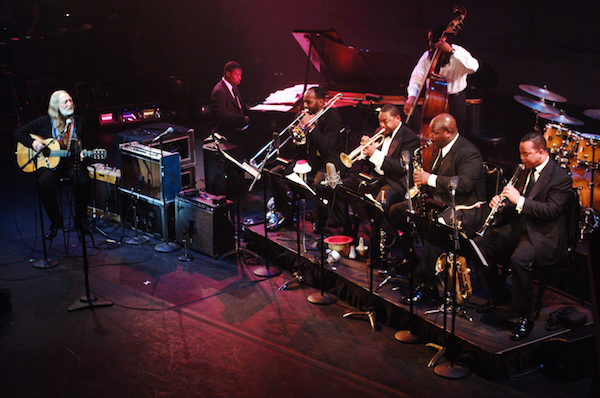
The album United We Swing features the Wynton Marsalis Septet and an array of guests, including Willie Nelson (left).
(Photo: Frank Stewart)The blues is the lingua franca on United We Swing: Best Of The Jazz At Lincoln Center Galas (Blue Engine), a new compilation featuring the Wynton Marsalis Septet. The album features memorable performances by a parade of stars from the worlds of pop music, gospel and blues: Bob Dylan, Ray Charles (in one of his final performances), Eric Clapton, Willie Nelson, James Taylor, The Blind Boys of Alabama, Jimmy Buffett, Lenny Kravitz, John Legend, Lyle Lovett, John Mayer, Audra McDonald, Natalie Merchant, Carrie Smith, Susan Tedeschi and Derek Trucks, all backed by the trumpeter’s septet. As Marsalis put it in an interview with DownBeat, “All of them came to play.”
Jazz at Lincoln Center raises money for its jazz education programs with annual gala fundraisers featuring top-tier jazz and pop stars, typically backed by the full Jazz at Lincoln Center Orchestra. In recent years, guests have included Tony Bennett, Paul Simon and Diana Krall.
United We Swing’s 15 tracks are taken from galas between 2003 and ’07, with the featured performers singing to jazz arrangements by Marsalis, Wycliffe Gordon, Andy Farber, David Berger and Richard DeRosa. All performances were donated by the artists. JALC pledges 100 percent of the proceeds to programs to introduce children all over the world to jazz.
We caught up with Marsalis by phone recently to discuss the project. Below are excerpts:
You’ve got so many years of great material from the annual galas. Why did you choose to focus on performances from 2003 to 2007?
We used to do two [fundraising galas] per year. The ones from 2003 to 2007 specifically featured musicians from other genres related to jazz, but playing in a jazz style with the septet. We stopped having those spring galas after 2007.
There are so many great moments from other JALC galas. Will there be a Vol. 2?
Not so much from the galas but from our other concerts. We have about 80 records of various shows. We’re trying to get that archive out through Blue Engine.
I’ve heard you say that if you want to appeal to a wide audience, blues and swing need to be first on the agenda. Is that why most of the material on the album is blues, or blues-based?
No. The reason it’s blues-based is because that’s what all of our forms have in common. If we look for commonality between all of the forms of American music, the blues is that root. That’s our common ground. The idea of this album is to bring people together. That’s what jazz is: a hybrid art form.
Many times when we come together with other musicians, we sacrifice our agendas to play with them. If you call me to play on a record, I’ll come and play a solo on your music. What makes this different is that the musicians who played on this record wanted to play jazz, to play on the swing rhythm, and to play blues and roots music the way we play it. Often when jazz comes together with other art forms, jazz sacrifices all of its objectives. If I sacrifice what makes me me, I’m not coming together with you.
So this was a real meeting of the minds?
Yes. And we had a great time talking about the music, planning it. Everybody was really involved in their songs, how they wanted it arranged, how we could work on grooves. Everybody was having a good time playing. Bob Dylan was playing. Everybody wanted to play and was easy to work with.
What was it like working with huge talents like Dylan and Ray Charles?
Everybody was doing it for free. They volunteered their time, including rehearsal time. Everybody was gracious and cool. Once, when we were on the gig and Ray started counting the tune, I thought, Man, I don’t know if he’s counting it at the right tempo, because it was so slow ... but that sure was it. I went to Ray’s funeral with Willie [Nelson]. I have a lot of friendships from those experiences.
Ray was like a jazz musician, you know? He and Willie Nelson both occupy kind of a similar space. I once heard them say to each other that they both sing American popular song, country music, they both sing and play jazz with the chord change element, and they both play blues. It was interesting for me to hear how long-standing and deep their relationship was. They were close friends going back to the 1950s.
Their tunes were recorded during the same show in June 2003, right?
Yeah. We had one unbelievable blues show with them that year: Clapton, Ray, B.B. King—everybody on the same night.
Is that you playing piano on Bessie Smith’s “Empty Bed Blues” (sung by Carrie Smith)?
That sure is me. That’s an old blues I used to play all the time.
These shows must have been a thrill for the musicians.
It was a monumental experience, man. These people wanted to come together. You have no idea what they did to do those shows. And when we got on the stage, it was electric. They wanted to do it because they believed in [music] education, they loved jazz, and were touched and had been influenced by it. They wanted to be part of something that was integrative, not just the same old thing. DB
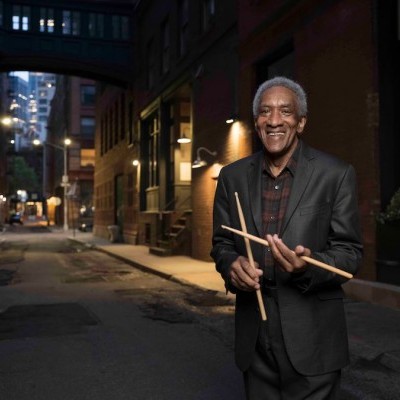
Foster was truly a drummer to the stars, including Miles Davis, Sonny Rollins and Joe Henderson.
Jun 3, 2025 11:25 AM
Al Foster, a drummer regarded for his fluency across the bebop, post-bop and funk/fusion lineages of jazz, died May 28…
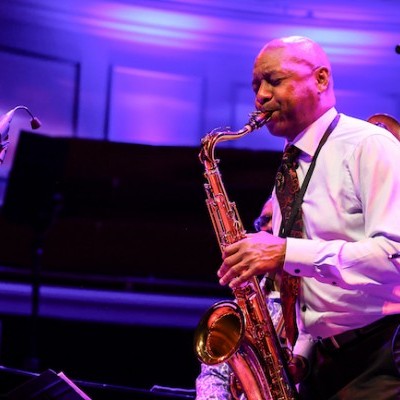
“Branford’s playing has steadily improved,” says younger brother Wynton Marsalis. “He’s just gotten more and more serious.”
May 20, 2025 11:58 AM
Branford Marsalis was on the road again. Coffee cup in hand, the saxophonist — sporting a gray hoodie and a look of…
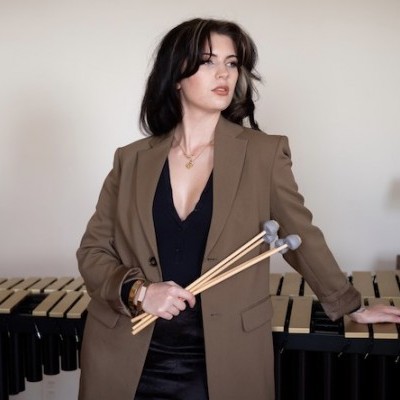
“What did I want more of when I was this age?” Sasha Berliner asks when she’s in her teaching mode.
May 13, 2025 12:39 PM
Part of the jazz vibraphone conversation since her late teens, Sasha Berliner has long come across as a fully formed…

Roscoe Mitchell will receive a Lifetime Achievement award at this year’s Vision Festival.
May 27, 2025 6:21 PM
Arts for Art has announced the full lineup for the 2025 Vision Festival, which will run June 2–7 at Roulette…
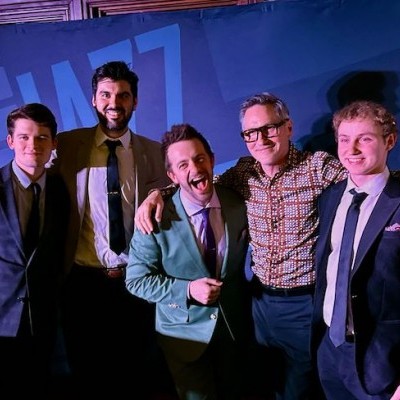
Benny Benack III and his quartet took the Midwest Jazz Collective’s route for a test run this spring.
Jun 3, 2025 10:31 AM
The time and labor required to tour is, for many musicians, daunting at best and prohibitive at worst. It’s hardly…